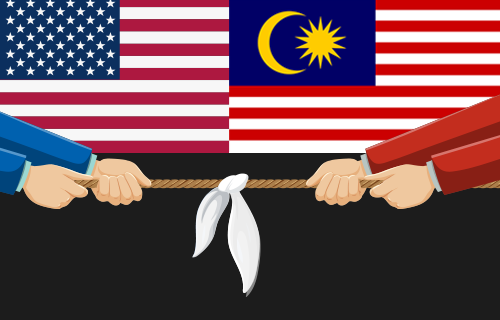IDEAS welcomes ratification of the CPTPP, states it will facilitate Malaysia’s post-pandemic recovery

Kuala Lumpur, 7 October 2022 – The Institute for Democracy and Economic Affairs (IDEAS) welcomes the ratification of the Comprehensive and Progressive Agreement for Trans-Pacific Partnership (CPTPP) as recently announced by the Ministry of International Trade and Industry (MITI) after eight years of negotiations. IDEAS noted that ratifying the CPTPP will help invigorate trade activities and economic growth in the backdrop of economic recovery from the pandemic and the looming global economic downturn next year.
Dr Tricia Yeoh, CEO of IDEAS highlighted that, “The CPTPP is a mega-free trade deal involving 11 members from across the Pacific Rim. In 2019, the member economies of the CPTPP collectively comprised 13% of global GDP. However, unlike traditional free trade agreements (FTAs) the CPTPP goes beyond providing market access for goods, services and investments only as it aims to provide high-quality standards on issues such as state-owned enterprises, public procurement, the environment and labour issues. IDEAS congratulates the government of Malaysia, in particular negotiators from the Ministry of International Trade and Industry (MITI) for this long-awaited accomplishment. We look forward to seeing how the trade deal will boost our economic productivity in the mid to long-term, especially in setting high standards throughout our economy at both federal and state levels.”
Malaysia had joined the original iteration of the agreement, the Trans-Pacific Partnership (TPP), in the third round of negotiations in October 2010. Following the 19th and final round of negotiations in 2013 the original TPP would be finalised, with Malaysia subsequently signing the agreement in February 2016 with the 11 other founding members. With the exit of the United States in early 2017, the 11 remaining members would convene in May 2017 on the sidelines of the APEC MRT Meeting in Hanoi, Vietnam, to reaffirm the importance of the TPP. The 11 countries would subsequently meet over several rounds to find ways to implement the TPP without the US.
Eventually, it was agreed to replace the TPP with the CPTPP, which Malaysia would become a signatory to on 8 March 2018 in Santiago, Chile. While the content of the original agreement is largely maintained, 22 provisions of the TPP were suspended or otherwise changed in the CPTPP. On ISDS in particular, in CPTPP foreign investors can no longer make an ISDS claim for violation of private investment contracts with the Government, or investment authorisations.
In the journey towards Malaysia’s ratification of the CPTPP, many laws have been passed since 2018. Nine out of 14 acts at the federal level related to the CPTPP were passed in Parliament. The other five acts and ordinances namely, the Employment Act 1955, Trade Unions Act 1959, Labour Ordinance (Sabah Chapter 67), Labour Ordinance (Sarawak Chapter 76), and the Communications and Multimedia Act 1998 were also tabled in Parliament for amendments.
“Despite data limitations, the preliminary quantitative and qualitative data of ratified partners of CPTPP have indicated positive trends on exports, imports and greenfield investments thus far based on the preliminary findings shared at the Asian Competitiveness Institute Research Conference on Assessing the Impact of CPTPP,” said Dr Juita Mohamad, Director of Research of IDEAS. “While the ratification of agreement marks an important milestone, a continuous assessment on the impact of the CPTPP on the ground needs to take place within the country and among the CPTPP members. There also needs to be additional support for SMEs to enhance their competitiveness so that they can effectively participate in the supply chain.”
— END —
Download Media Statement PDF File Here
For enquiries, please contact:
Dr Juita Mohamad, Director of Research;
Director, Economic and Business Unit
T: +603 2070 8881/8882 | E: juita@ideas.org.my
Louis Denis, Manager, External Relations
T: +603 2070 8881/8882 | E: louis@ideas.org.my

